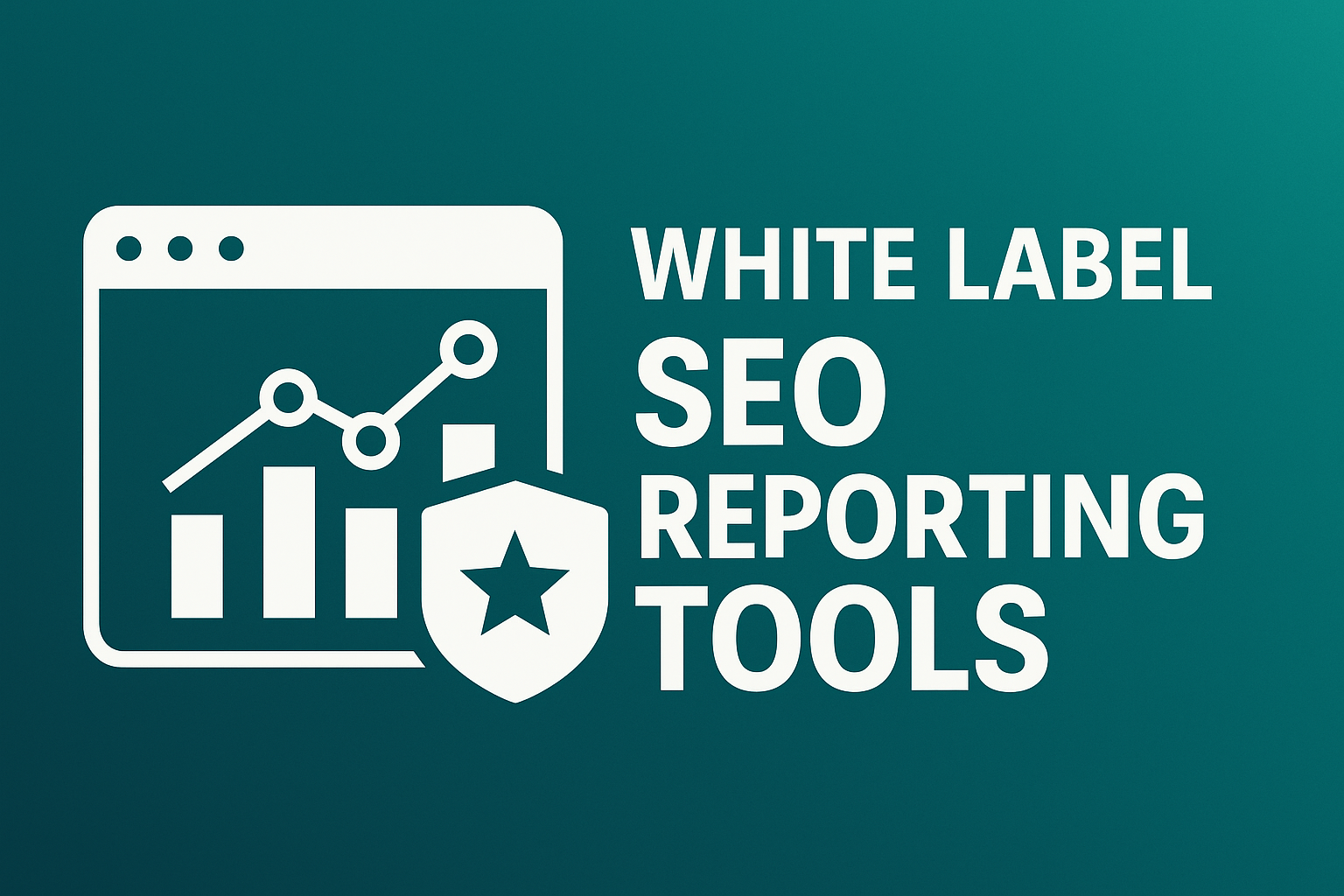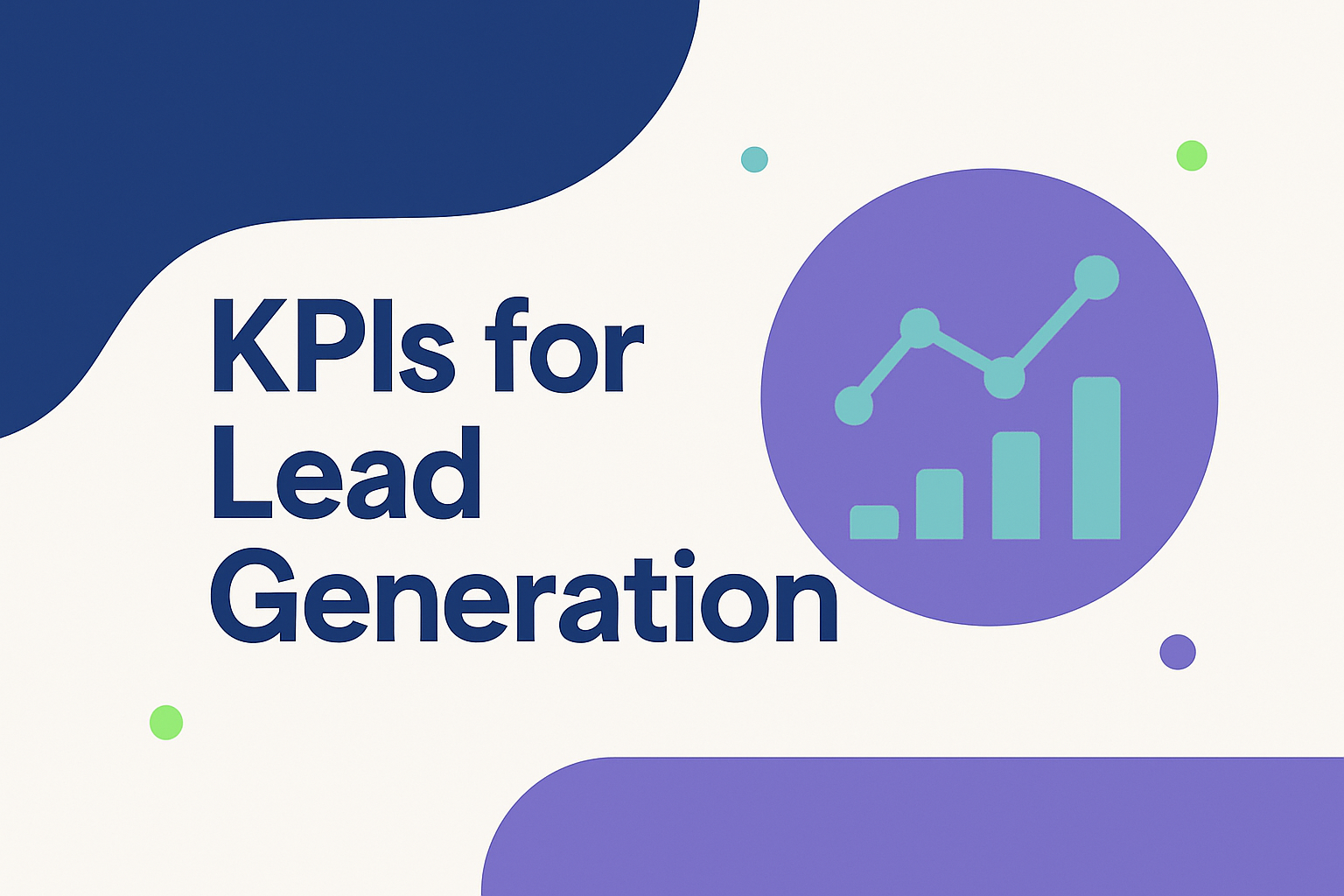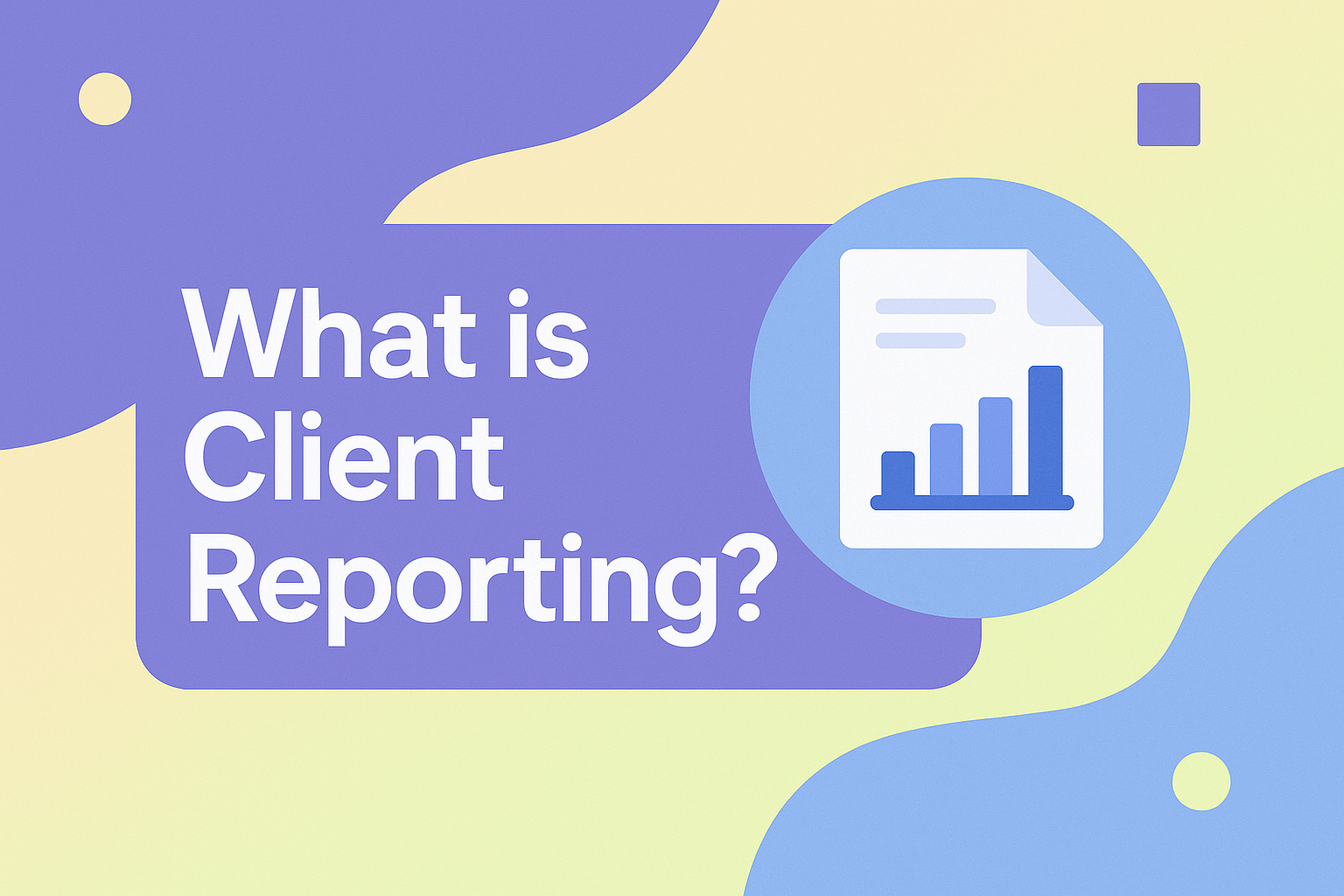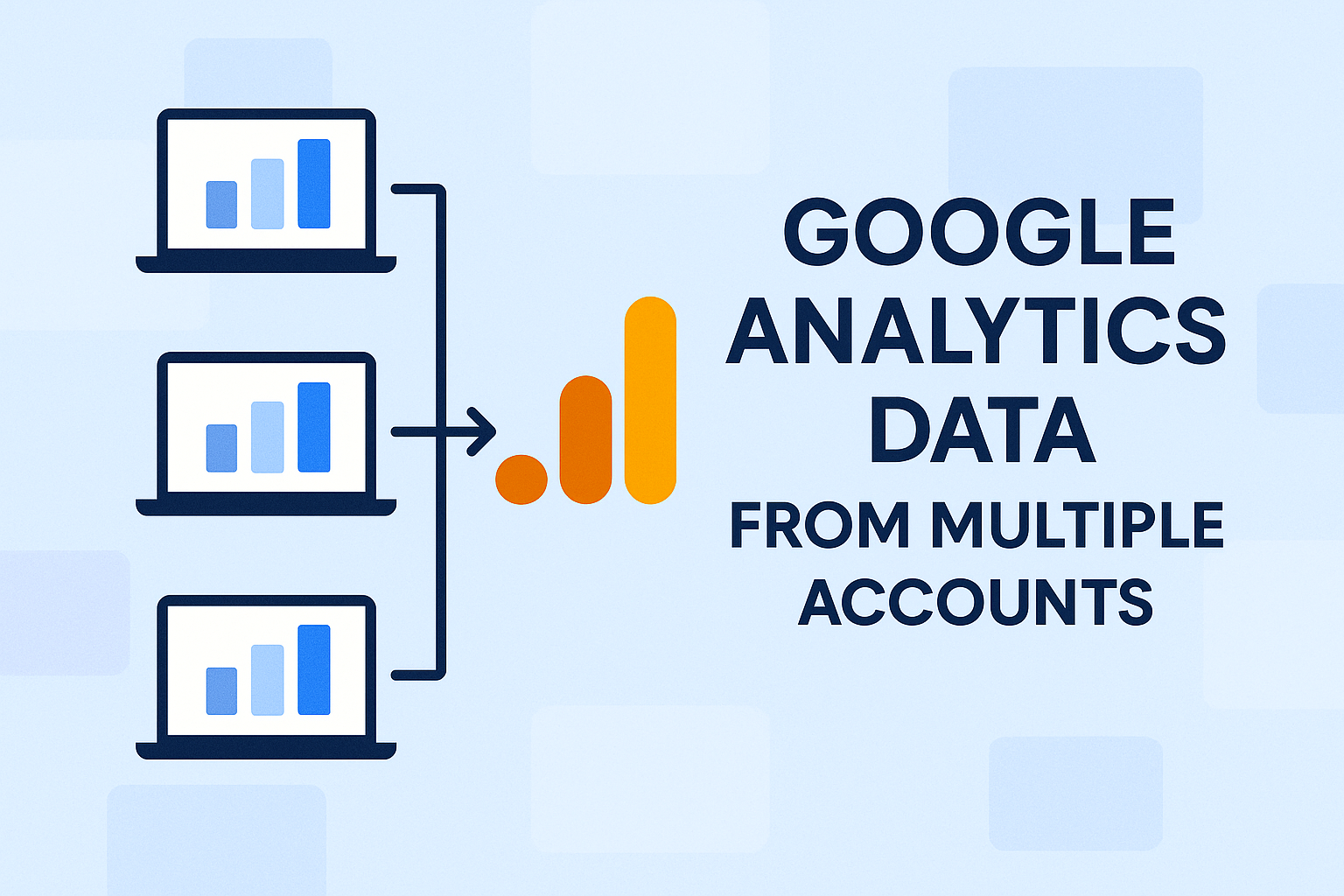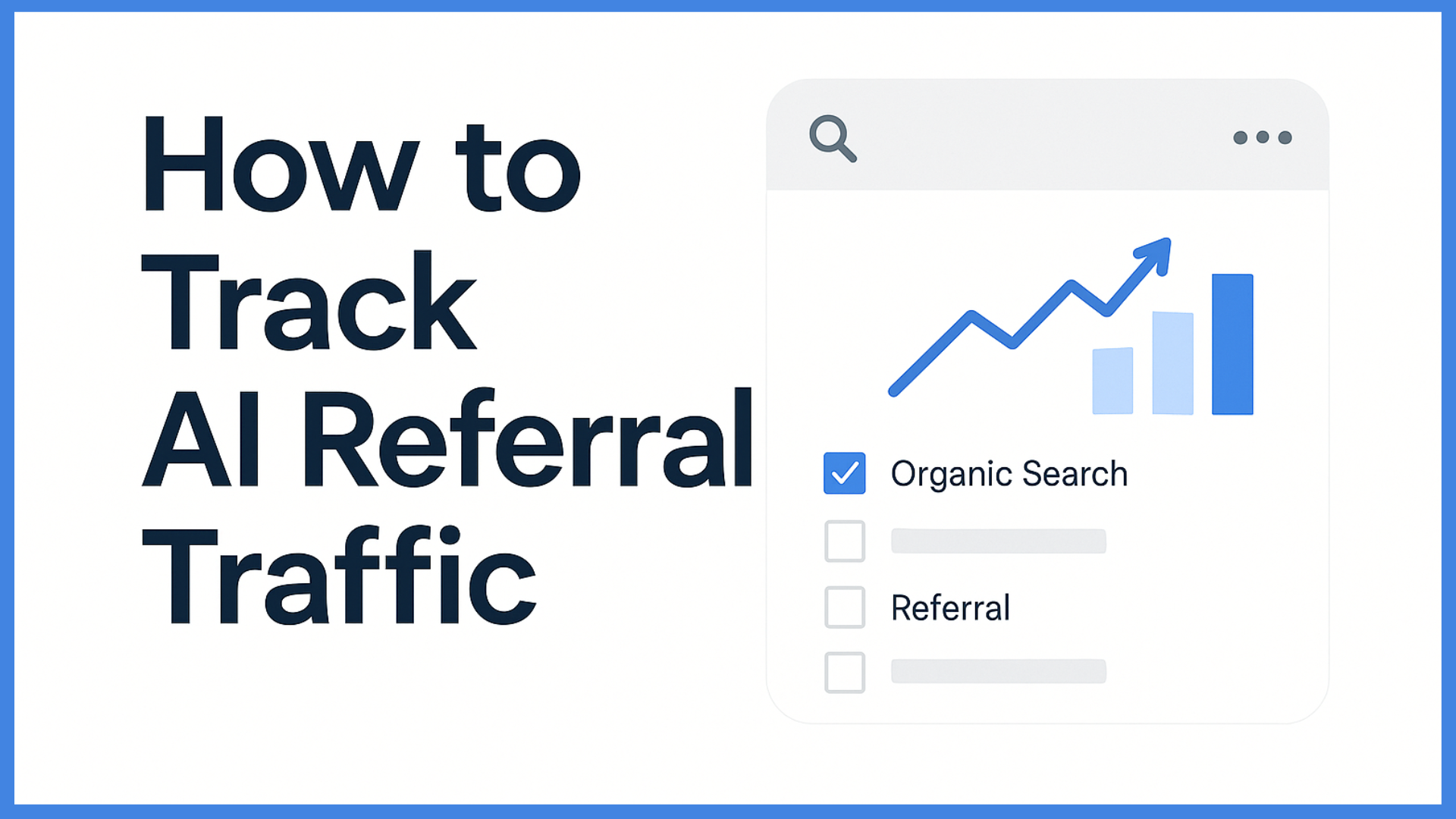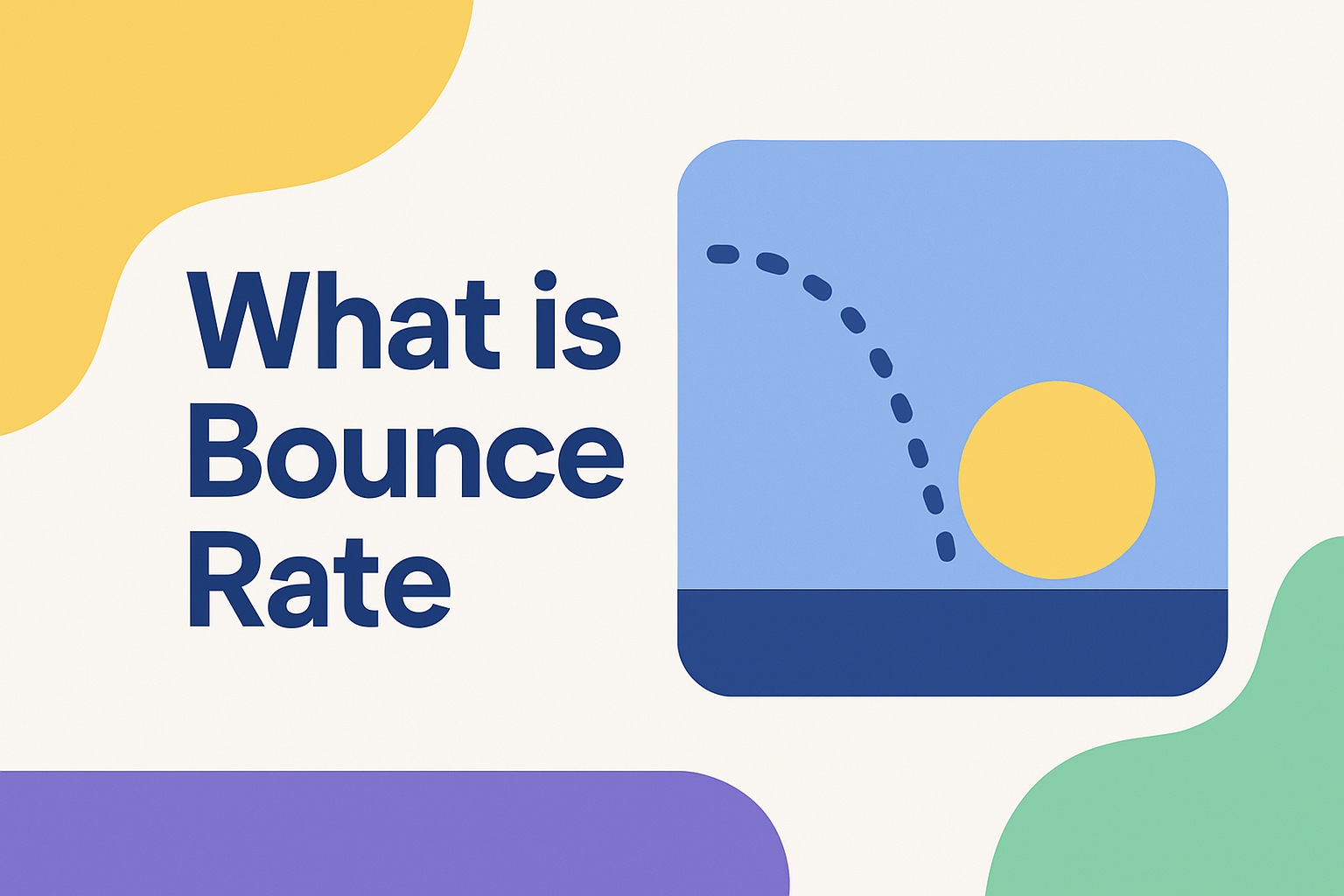10 Game-Changing White Label SEO Reporting Tools for Agencies
Key Takeaways
- White label SEO reporting tools allow agencies to provide these deeply branded, professional reports customized to client needs, building credibility and trust.
- Automation and customization capabilities allow US agencies to save valuable time and resources. Beyond that, they help grow their businesses and improve client retention.
- Choosing a tool with seamless brand integration, reliable data accuracy, and secure client portal access ensures reports look professional and keep client information protected.
- Robust data sources, an extensive template library, and a user-friendly interface empower agencies to deliver in-depth yet digestible insights to clients.
- Prioritizing actionable recommendations and clear, visual displays of data in reports helps clients grasp complex information, improving client experience and satisfaction.
- Here’s why agencies should continually iterate their reporting process. They should continuously learn about new tools and trends to get a leg up on the competition in this ever-changing SEO landscape.
A white label SEO reporting tool allows agencies to present SEO reports in their own brand name, rather than the name of the software.
These tools allow teams to create customized reports, connect multiple data sources, and save time through the use of pre-built templates. Most include drag-and-drop functionality, integrate with Google Analytics, and provide one-click sharing capabilities.
For U.S.-based agencies, these tools go hand-in-hand with what clients are looking for and further streamline maintaining a simple workflow.
The following sections explore key functionalities.
What Are White Label Reports?
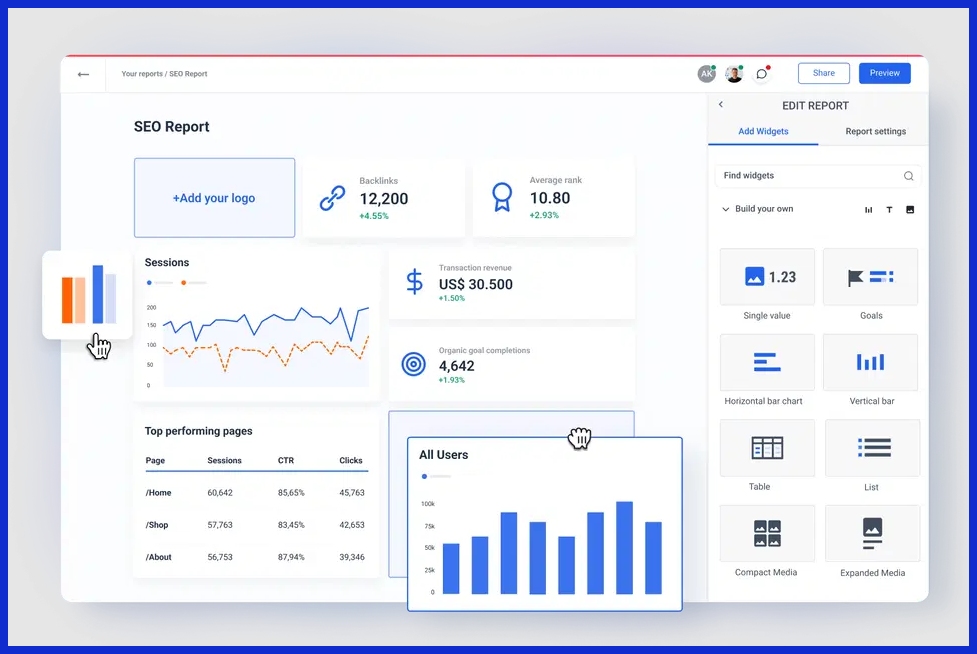
Simplifying white label reports, White label reports are third-party branded SEO reports. Agencies can white label these reports to showcase them as their original work.
These reports allow agencies to maintain a crisp, clean, professional appearance when presenting to clients. They can insert their logo and style, allowing the report to look like it belongs alongside their other client deliverables.
This is a typical arrangement for U.S.-based digital agencies. It gives them the ability to deliver deep SEO insights, all without having to recreate the wheel.
Reason #1 — White label reporting saves time. It saves teams time to do other work because reports can be easily generated and delivered automatically.
Agencies love these reports as they provide opportunities to show off impressive details such as keyword rankings, traffic trends, and backlink data. Whether it be wins or performance gaps, white label reports help clients see the full picture of their SEO efforts.
They help agencies have conversations about what those results are. This is an approach that fits seamlessly into the unique needs of each client, from increasing organic traffic to solving site issues.
By providing your clients with a complete, simple-to-understand overview, you increase client trust and maintain transparency.
Defining Branded SEO Reporting
Defining Branded SEO Reporting, branded SEO reporting simply involves allowing an agency to insert their name, logo, and brand colors into the SEO reports. This maintains the agency’s branding and appearance uniform between emails, dashboards, and reports.
The quality of the branding is crucial. When clients receive reports with uniform branding, they can immediately identify who is managing their SEO and feel a level of reliability.
White label reports help agencies appear polished and professional. They go a long way in helping clients feel more confident in the services they’re receiving.
For agencies, this can translate to more long-term relationships with clients and increased retention.
Boost Your US Agency Now
White label SEO reporting tools provide US agencies with a competitive advantage in a saturated market. By leveraging these tools, agencies can improve their service offering and serve a larger number of clients without increasing the workload.
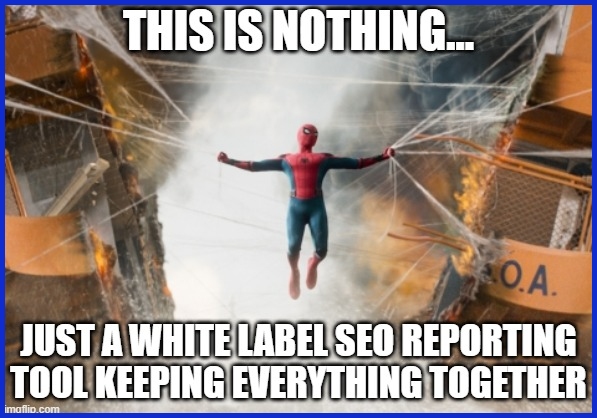
These tools bring all your data together into one place. It’s not that hard to have literally hundreds of client projects and keep track of keywords and performance in things like Google Search Console. For some, the challenge is a lack of integrations with tools outside of SEO.
Elevate Your Brand Authority
White label reports are not just a data dump. They make US agencies seem professional and reliable, with each report featuring your agency logo and brand colors.
This increases brand perception among clients, positioning your agency as a trusted authority in all matters SEO. Monthly branded reports provide a touchpoint to keep clients informed and demonstrate your understanding of search trends.
Save Crucial Time & Money
Manual reports take a huge amount of time and budget. Automated white label tools make that possible.
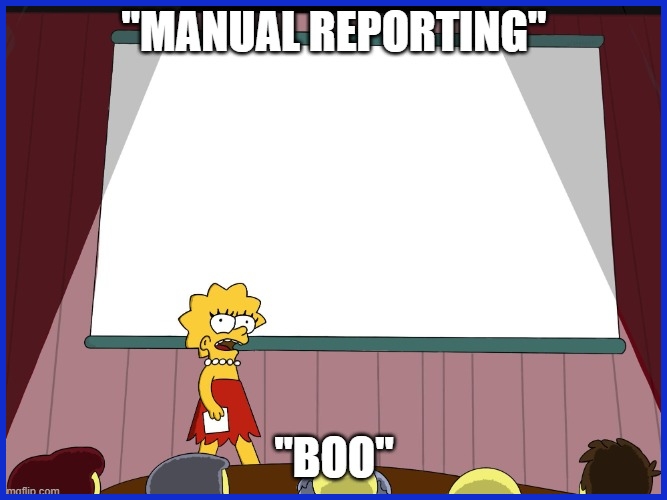
With customizable templates and AI-driven insights, you eliminate the time it takes to build reports from the ground up. Cost savings are apparent almost immediately.
As a bonus, you get to shift your team’s focus from low-value, mundane work to value-added activities, such as improving strategy or optimizing for conversions. This change gives you the ability to create more effective campaigns.
Key Features That Truly Matter
Choosing the best white label SEO reporting tool for your needs goes beyond checking off a list. Agencies should consider what makes the most sense for their employees and their clients. The best reporting platform. The bare minimum should be just that—minimally—and must instead be bolstered with features that truly align with everyday workflows.
Here’s a look at the key features agencies should seek out—and why they’re important for client happiness and agency prosperity.
1. Full Report Customization
Customizing reports should be a lot more than changing a logo. Agencies these days are a diverse blend of tiny shops, large firms, and boutique specialty clients. Each one carries with it its own goals and priorities.
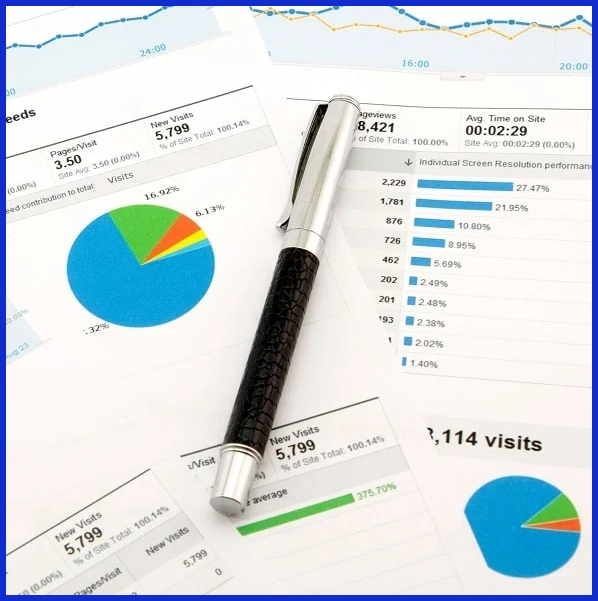
Through full report customization, agencies can create reports that reflect a client’s branding and style guide while emphasizing the most meaningful metrics.
For example, an e-commerce client will likely want to track conversion rates and average order value. On the other hand, a small, local business might focus its efforts on ranking well in local search and using call tracking.
2. Seamless Brand Integration
Branding allows agencies to differentiate themselves in an increasingly competitive marketplace. Flexible brand integration means reports look and feel consistent with the agency’s style. This is more than just tick marking and logo slapping a PDF.
Quality tools allow agencies to upload brand colors, use agency-specific fonts, and ideally, even use custom headers and footers. When clients open their agency’s app and see that agency’s branding front and center, it helps foster trust and makes every interaction feel polished and professional.
3. Automated Client Reporting
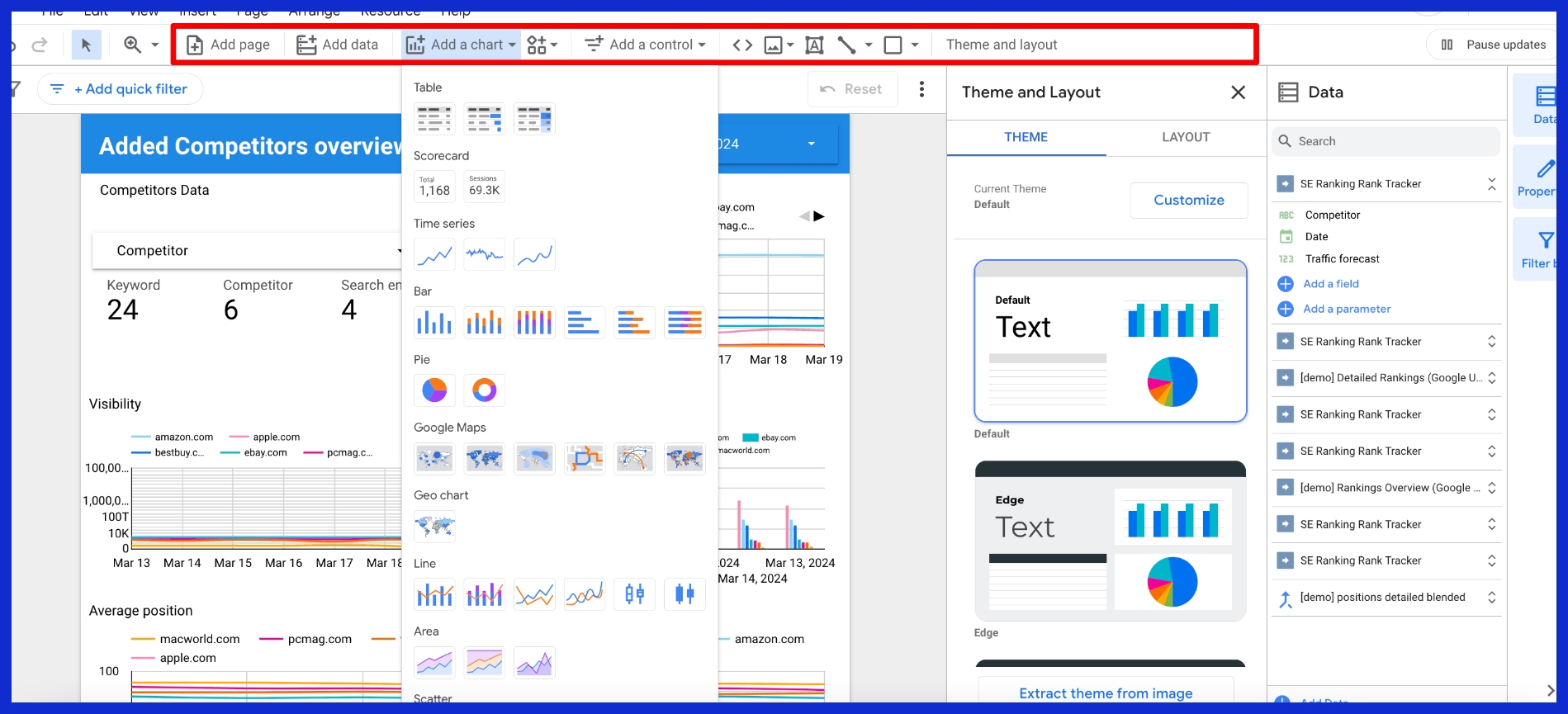
Manual reporting is extremely time-consuming, particularly when considering agencies that have dozens or even hundreds of clients. Automation is a true game changer. Agencies can easily program in automated client reporting to have reports sent out on a weekly, monthly or quarterly basis.
They won’t need to do anything manually every time! This not only helps clients stay informed, but it reinforces the perception that the agency is taking initiative to provide regular updates. Automation greatly minimizes errors that are inevitable with manual processes.
4. Broad Data Source Links
Modern SEO goes beyond keyword ranking positions. Agencies can’t get by with the insights only available through Google Analytics, Search Console, from social media, paid ads and more. The best reporting tool aggregates data from all these sources, providing immediate access to a holistic view of performance.
For instance, integrating SEO data with your Google Ads spend allows agencies to better illustrate how paid and organic efforts complement each other. Bringing in social signals or backlink data can reveal tremendous opportunities for growth.
5. Intuitive Platform Navigation
A smart reporting tool should save, rather than add, productive hours to the workday. Intuitive navigation makes it easy for anyone on the team to find what they need, even without a deep technical background.
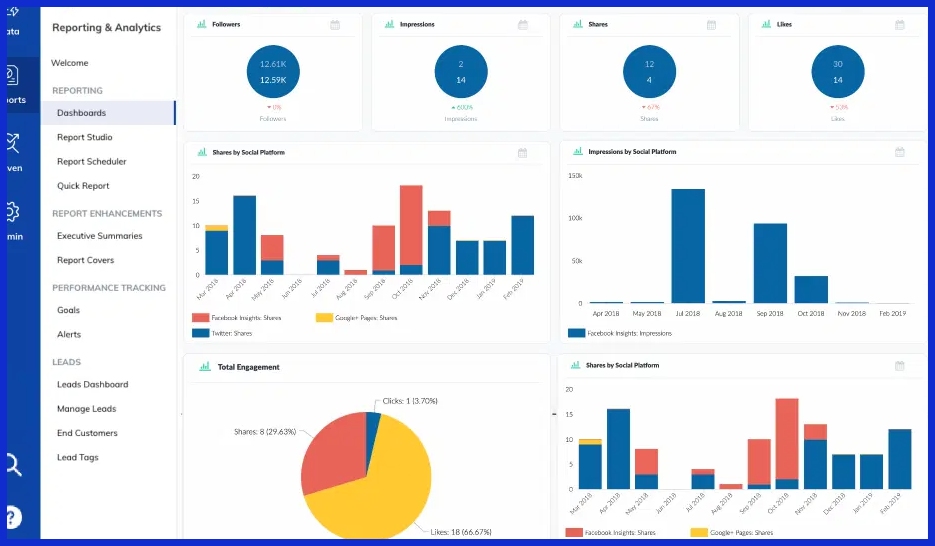
When the platform is user-friendly, agencies can jump straight into actionable insights. They’re not spending time figuring out what settings or features they need to navigate to. An intuitive dashboard, easy-to-follow menus, and drag-and-drop report creation make all the difference in the world.
6. Reliable Data Accuracy
Clients expect agencies to provide them with accurate data, no estimates. Reliable data accuracy is the ultimate backbone of any report. Tools that sync directly with trusted sources (like Google Analytics, Search Console, or third-party SEO platforms) help ensure the numbers are right.
Reliable data accuracy allows agencies to identify problems early on, before they grow into larger concerns. For instance, if the data is reliable, a new drop in organic traffic will be immediately noticeable. Great integrity with data increases client trust.
7. Secure Client Portal Access
Privacy and security are privacy concerns for all clients, but especially those clients who work with sensitive or regulated information. Secured client portal access allows agencies to privately share reports through a password-protected space.
This further protects client data and demonstrates that your agency is serious about security. Clients have 24/7 access to their reports with secure login access. They don’t need to check their spam folders for attachments anymore or risk having their plans sent to the wrong email address!
8. Scalability for Agency Growth
Scalability is important. A good white label reporting tool can handle more clients, more data, and more users without slowing down or bumping up costs too quickly.
For instance, an agency that launches with five clients might plan to grow to dozens more within the first year. It should be simple for new users to add accounts, build templates for workflows, and handle even larger datasets.
9. Diverse Template Options
After all, not every client is going to want a data-heavy, technical report. Some users prefer effective SEO reports with highlights, while others enjoy detailed deep dives. Different white label SEO report templates allow agencies to customize reports for each client’s branding and design preferences.
10. Insightful Analytics Display
Because even the most outstanding data is no good if you can’t decipher it at a glance. Analytics displays that are both insightful and intuitive will help you transform raw numbers into clear, meaningful visuals.
Tools that offer charts, graphs, and visual summaries make it easier for clients to spot trends and understand what’s working. An organic search growth trajectory line graph can demystify reams of bewildering data.
Pick Your Ideal Reporting Tool
Picking the ideal white label SEO reporting tool requires some due diligence. Agencies need to be clear on what they’re trying to track—their tracking goals might be tracking traffic, leads, or link wins, for example. After all, they need to first determine which numbers they should care about and track.
A great tool should be the following:
- Aligning Client Expectations
- Upholding Data Integrity
- Balancing Automation, Human Touch
- Navigating Platform Limitations
- Communicating Complex SEO Data
Using clear, jargon-free, accessible language is the best way for clients to understand technical terms. Charts, simple analogies, or even just plain visuals can take complex data and make it a slam dunk for your client to understand.
Top 10 White Label SEO Platforms
White label SEO platforms have become an invaluable resource for agencies. Their precise rank tracking and tailored reports save you just hours of compiling results on your own. The worldwide digital marketing software market has already exceeded $100 billion!
These platforms are time-saving, value-adding, and make agencies look more professional in the client’s eyes. Many of these tools offer automated dashboards, flexible reporting, and custom branding, with pricing that fits different budgets and needs.
Here’s a closer look at some of the best white label SEO platforms. We’ll dive into their features, pricing, and what makes each one unique and best suited for agencies and teams.
Platform Profile 1: SERPninja.io
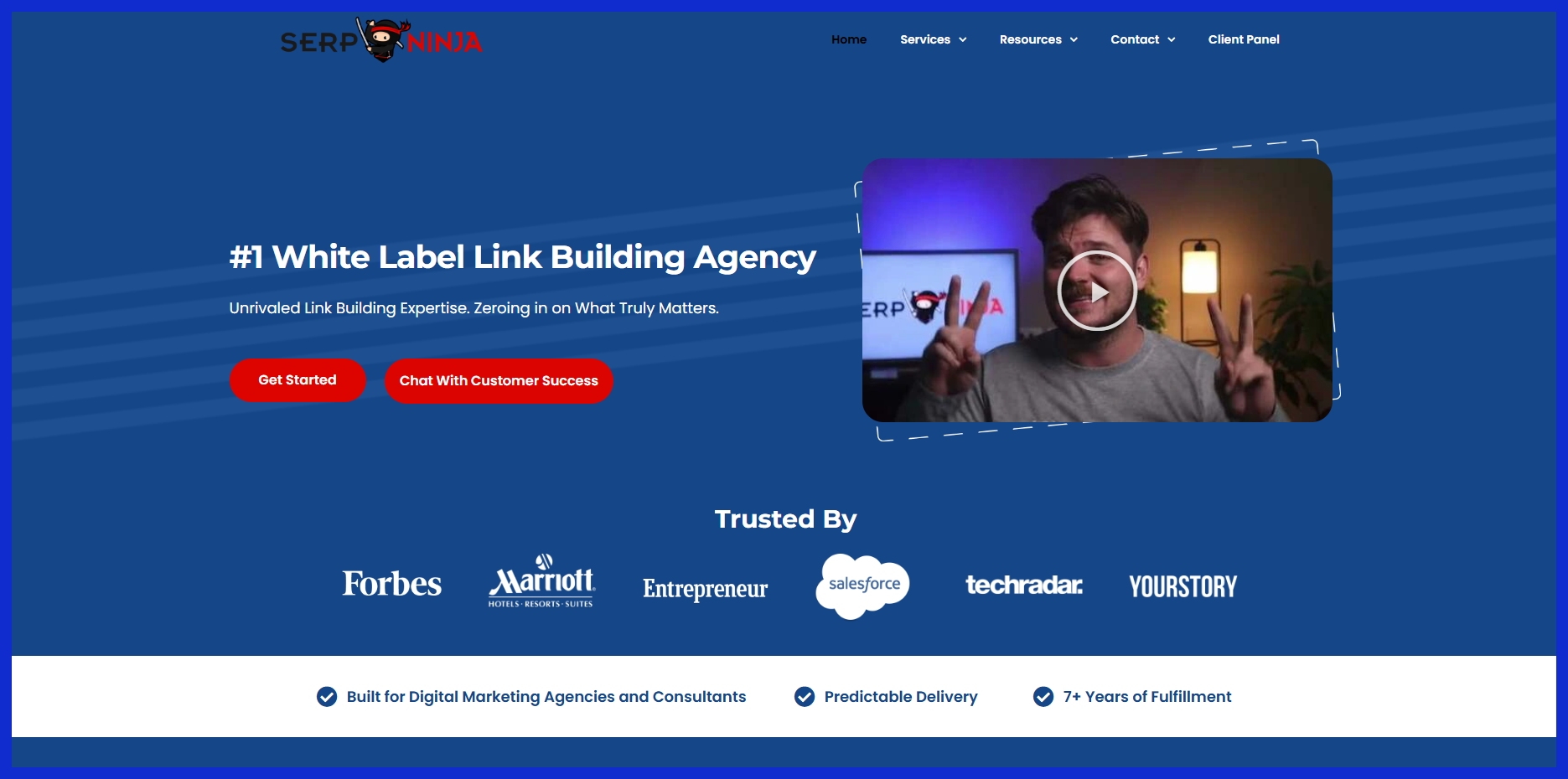
SERPninja.io is quickly gaining traction as a go-to provider for SEO professionals who value precision and power in their link building. The platform specializes in high-quality niche edits, offering contextual, in-content backlinks on aged, relevant websites—ideal for boosting domain authority and keyword rankings.
What sets SERPninja.io apart is its laser focus on relevance and site quality. Each link is carefully placed within niche-relevant content on vetted websites with real traffic. This attention to detail makes it especially popular among agencies that need reliable, white label SEO results without compromising on quality.
Pricing is straightforward and tiered based on the authority and traffic metrics of the linking domains. Packages start at competitive rates, with options to scale as needed for larger campaigns.
While there’s no free trial, SERPninja offers white label reporting and fully managed campaigns, making it easy for agencies to deliver professional-grade SEO work under their brand.
Platform Profile 2: SirLinksalot
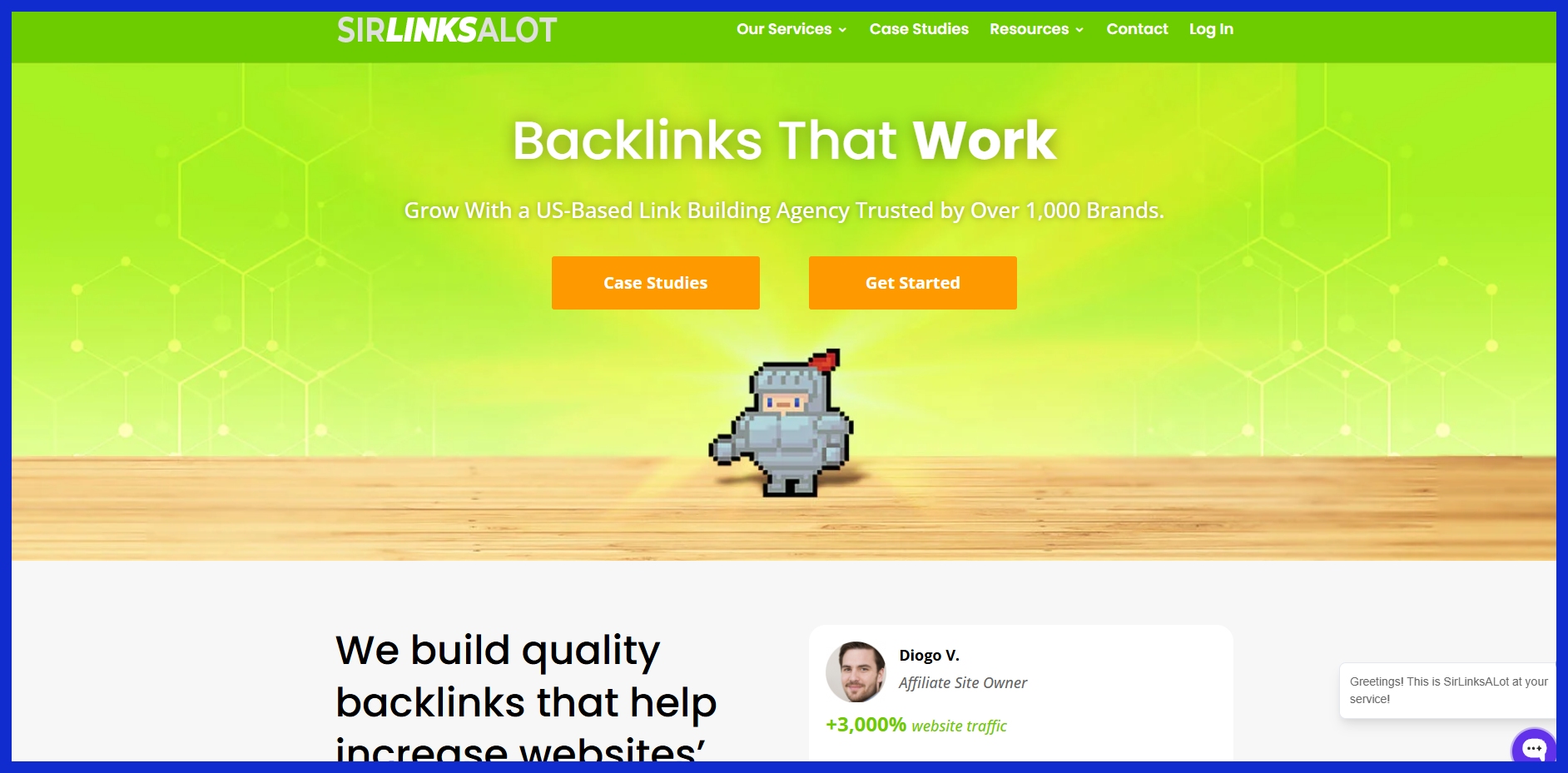
SirLinksalot is carving out a terrific niche in the SEO space. Their platform provides you with all the types of links you need, whether they are guest posts, niche edits, PBNs, or authority links.
What makes it unique is its attention to developing a custom strategy for each campaign that fuels the success! It keeps a high-quality bar for links. This is a big reason why it’s a favorite among agencies that need a more customized white label SEO solution.
SirLinksalot’s pricing is modular—costs vary based on the type and quantity of links required. To give you an example, their guest posts begin at $80 per link, but authority quality runs much higher.
No free trial is available; however, most find value in the pay-as-you-go flexibility. Custom branding on reports is available starting at their mid-tier plans, allowing agencies to deliver reports of work done in their name.
Platform Profile 3: The HOTH
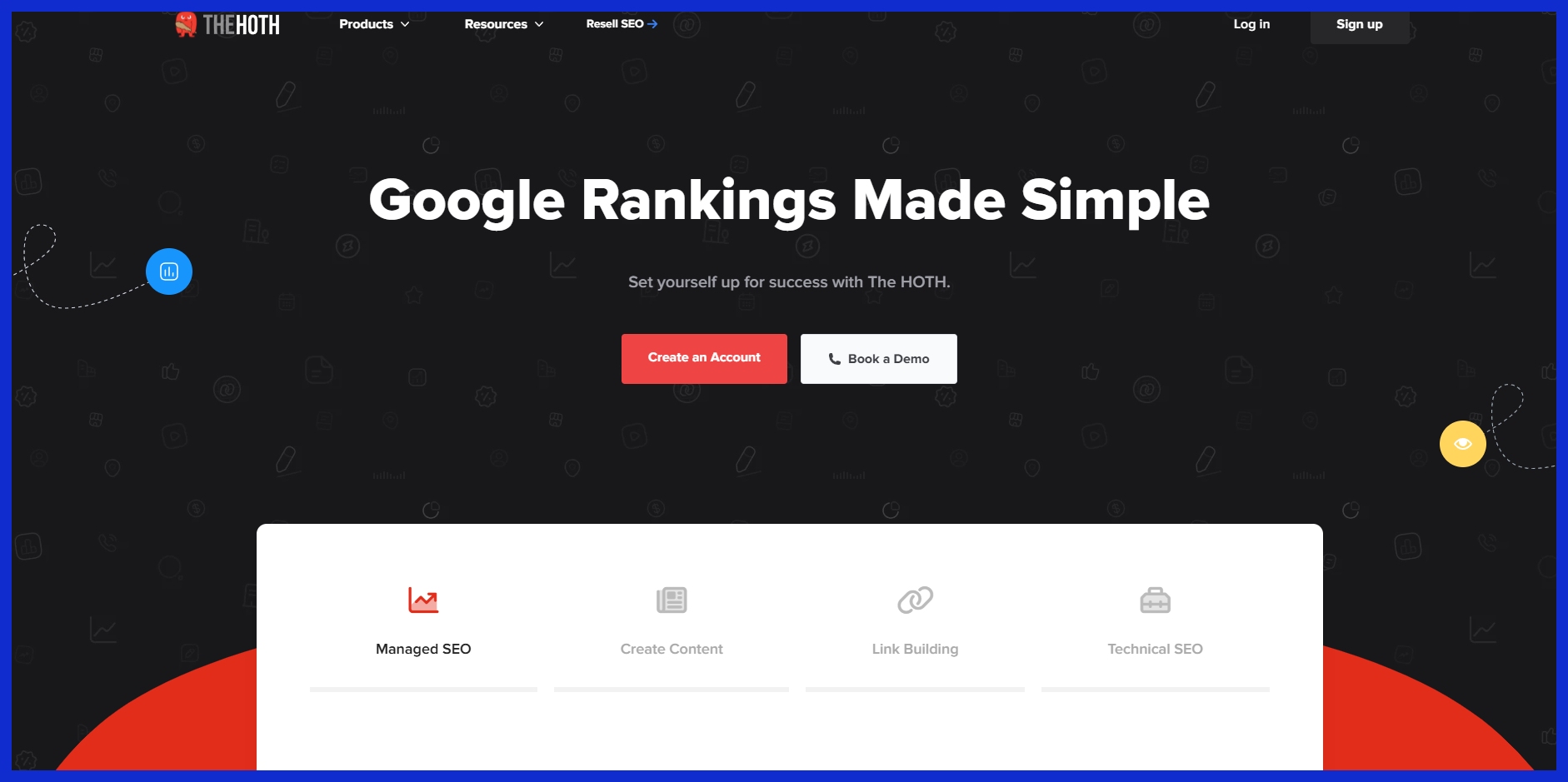
The HOTH has a modern, clean, and easy-to-use dashboard and bulk order system. Their services include everything from guest posts to local SEO and even PBN links.
It is user-friendly enough for advanced SEOs and entry-level agencies alike. Pricing is as low as $29 for local SEO packages. If you want more advanced link building, expect to be quoted the $60-$500+ per project.
Free trials are offered for many services, including local SEO audits, allowing agencies to test out various features with no obligation. The HOTH shines with its educational library and strong support.
It’s ideal for agencies and teams looking to grow at a rapid pace, with easy onboarding and speedy client reporting.
Platform Profile 4: Fat Joe
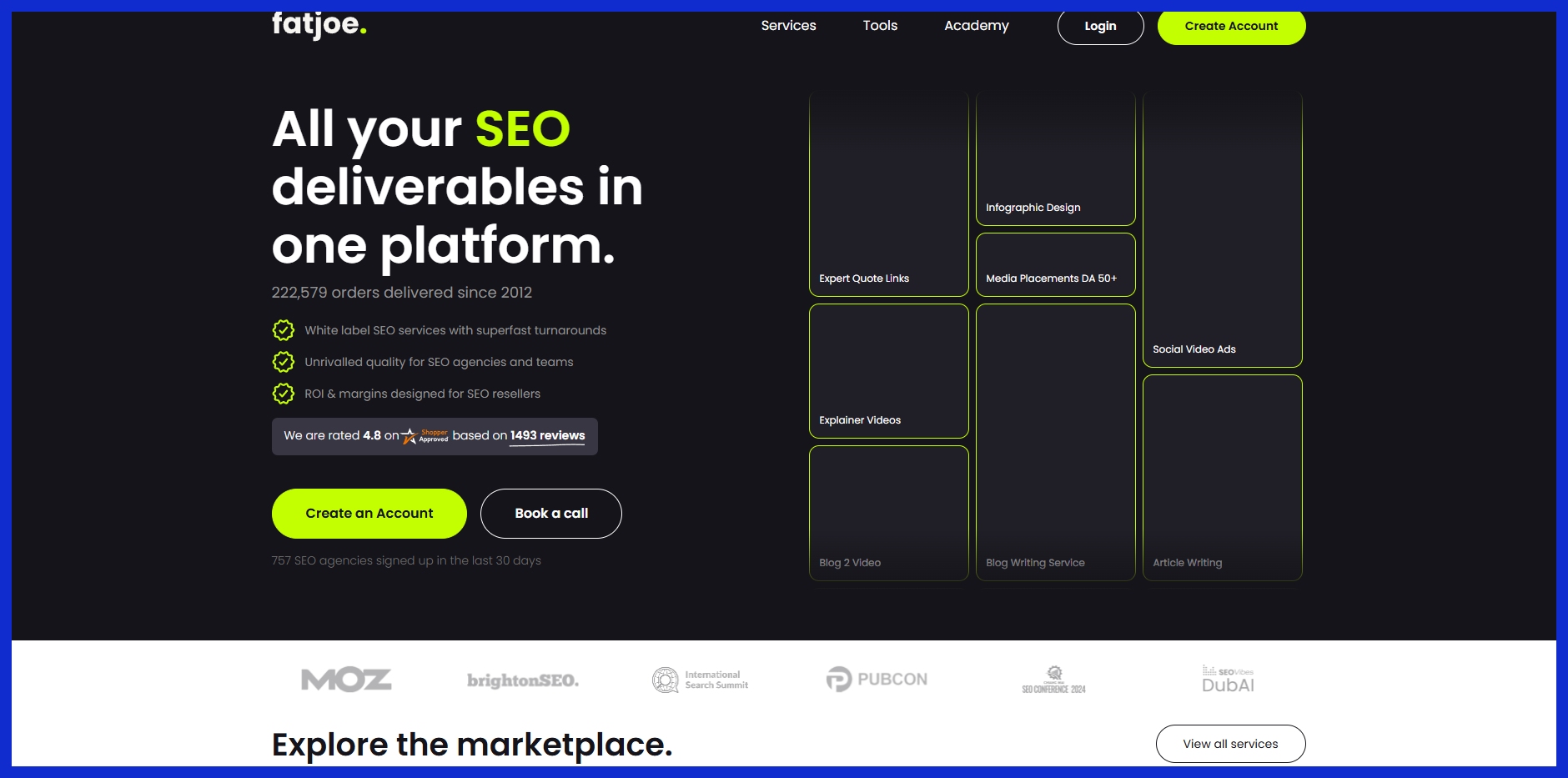
Fat Joe focuses on busy agencies and resellers looking for a plug-and-play solution. The platform’s key features include guest posts, outreach services, and press release distribution.
Fat Joe is a favorite for its fast turnaround and easy-to-read, nicely designed reports. There are options in the form of one-off press release packages or bundles, with the PR packages starting at $45 per guest post.
No free trial is provided. That said, between the platform’s overall user-friendliness and scalability, it’s one of the best platforms available for agencies working at scale.
Professional white label reports and dashboards are provided, with the ability to add branding from the second pricing tier.
Platform Profile 5: Loganix
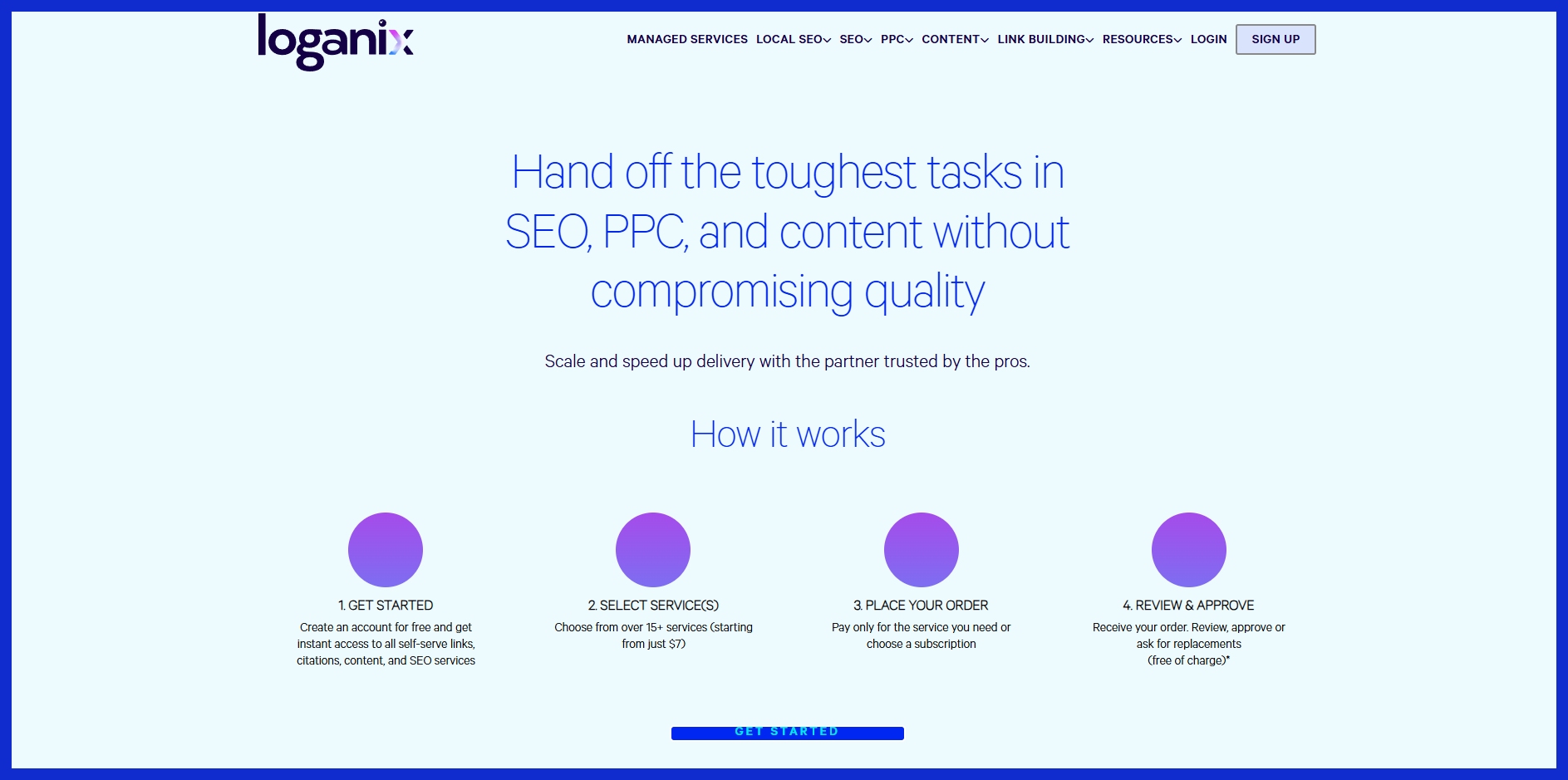
Loganix specializes in the highest-quality, relevant, and curated links, editorial content, and citation building for local SEO. Their dashboard is very clean, and they stick by their values of transparency and white-hat practices.
Pricing begins at $40 per citation and $199 for editorial links. We don’t have free trials, but we do have a straightforward refund policy. Loganix is a favorite among risk-averse agencies looking to eliminate risks associated with bad links.
Its reporting tools are extremely powerful. They provide many ways to implement custom branding and client logins, allowing agencies to easily prove tangible results to clients.
Platform Profile 6: Authority Builders
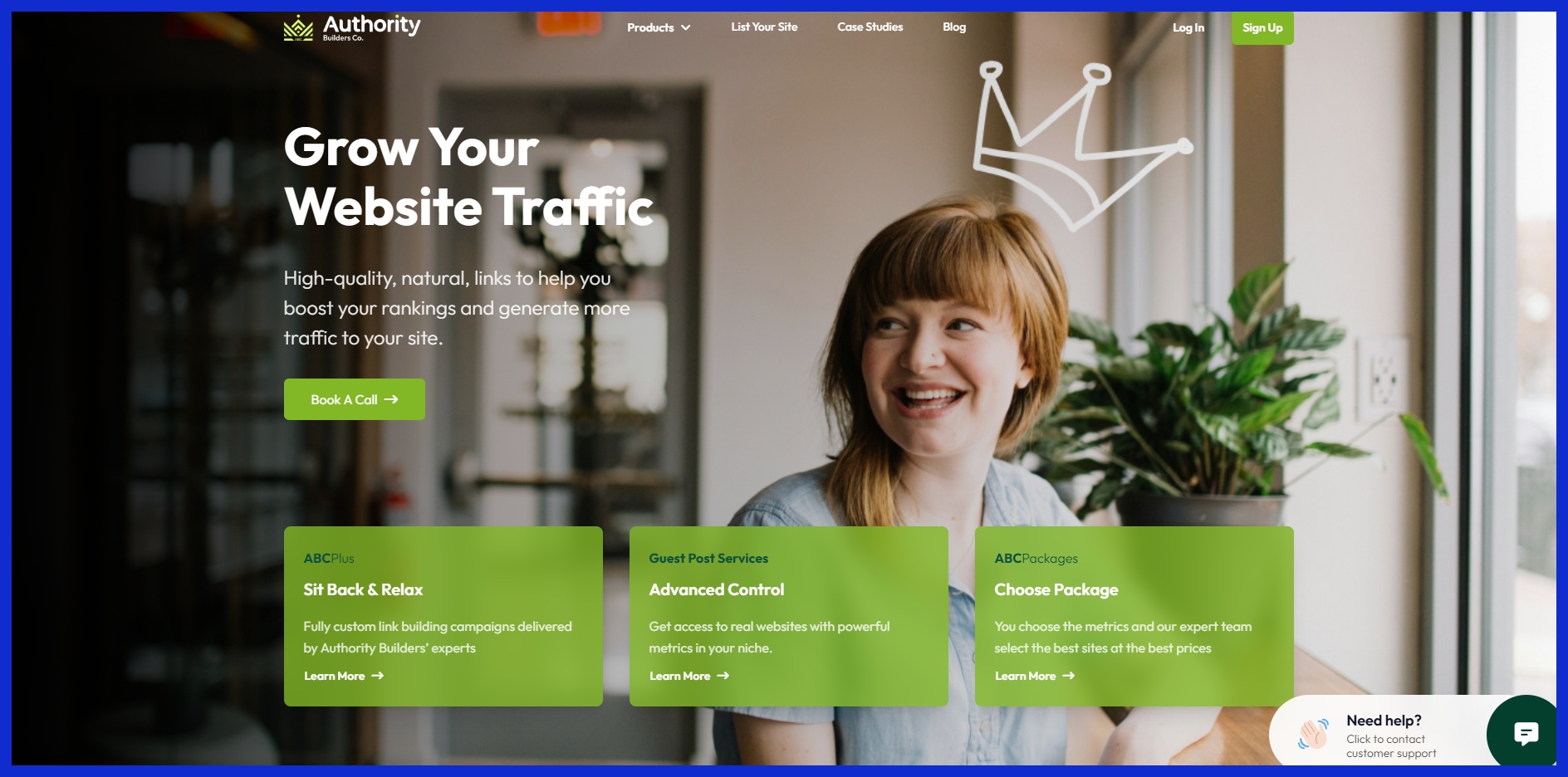
Authority Builders is a marketplace-style platform where you can buy guest posts, with a strong emphasis on domain rating (DR). This particularly attracts the attention of seasoned SEOs who are looking to optimize for specific metrics that their clients care about.
Pricing is straightforward and starts at $100 per guest post, although sites with a higher DR and niche sites will cost more. While there is no free trial, the self-serve dashboard allows agencies to search for and purchase links at their convenience.
Though their mid-tier plans do provide branding options and white label reporting, this is great for helping agencies maintain their agency brand and brand recognition!
Platform Profile 7: Rhino Rank
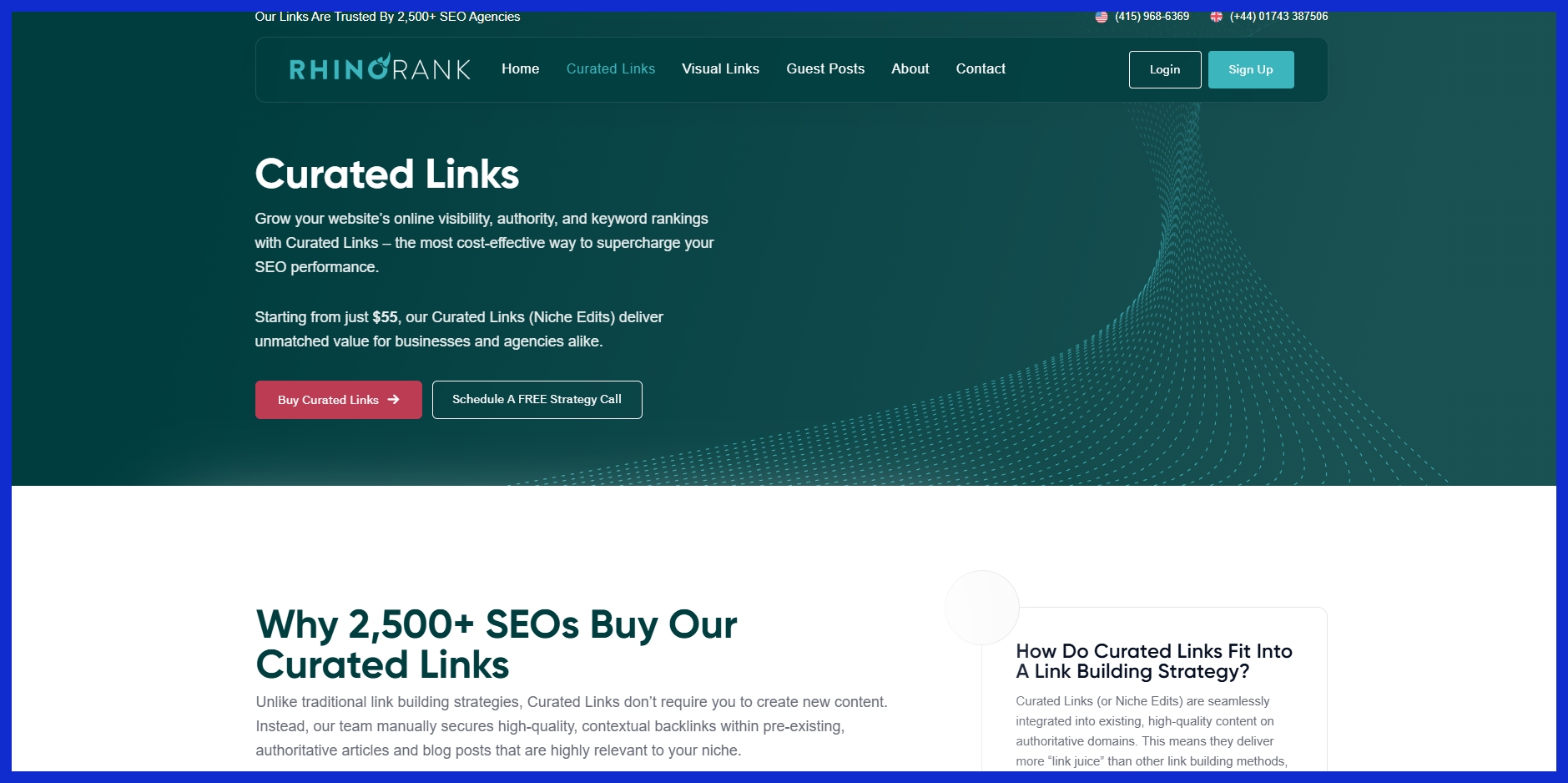
Rhino Rank focuses on guest post links and curated links, with packages designed to appeal to cost-effective SEOs and small niche site owners. Packages begin at $33/month and scale according to volume and link quality.
While there is a bit of a learning curve to using the dashboard, most agencies seem to get the hang of it fairly quickly. The platform does not provide a free trial.
Its real star power comes from its simple pricing and bulk discounts, which is ideal for agencies with regular recurring needs or those operating many managed sites.
Platform Profile 8: SEOeShop
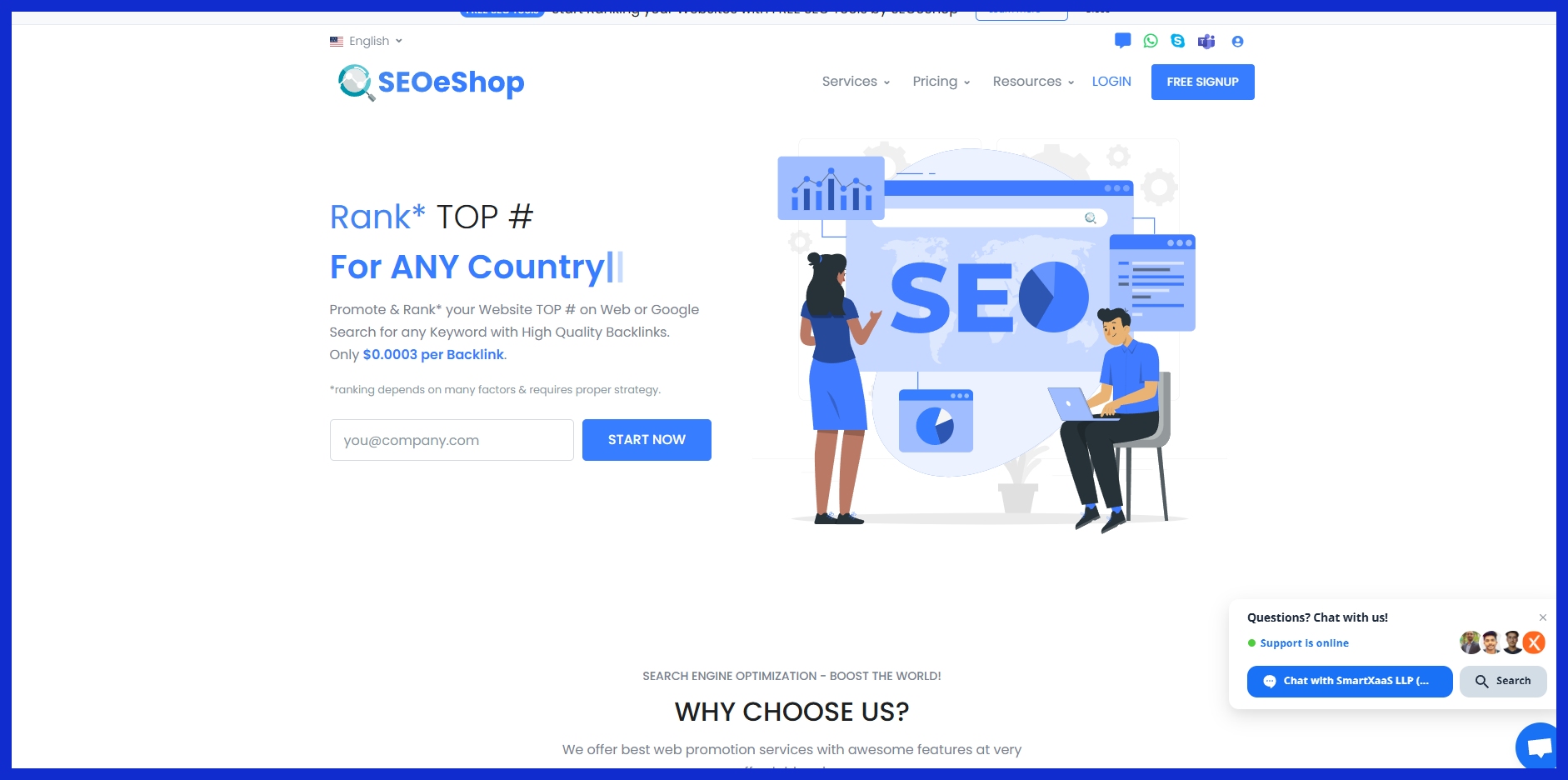
SEOeShop, a white label SEO platform, is a sub-brand of Rhino Rank. It provides guest posts and edits in bulk for agencies that require high volume and can accept a lower quality variance.
Pricing is quite low compared to most, beginning at $29 per order. With a very friendly dashboard, large orders are dealt with in no time at all.
No free trial is available, but the price point is low enough for agencies to run a small test order. This platform is a go-to option for agencies on a tight budget or agencies looking to pilot new strategies.
Platform Profile 9: Crowdo
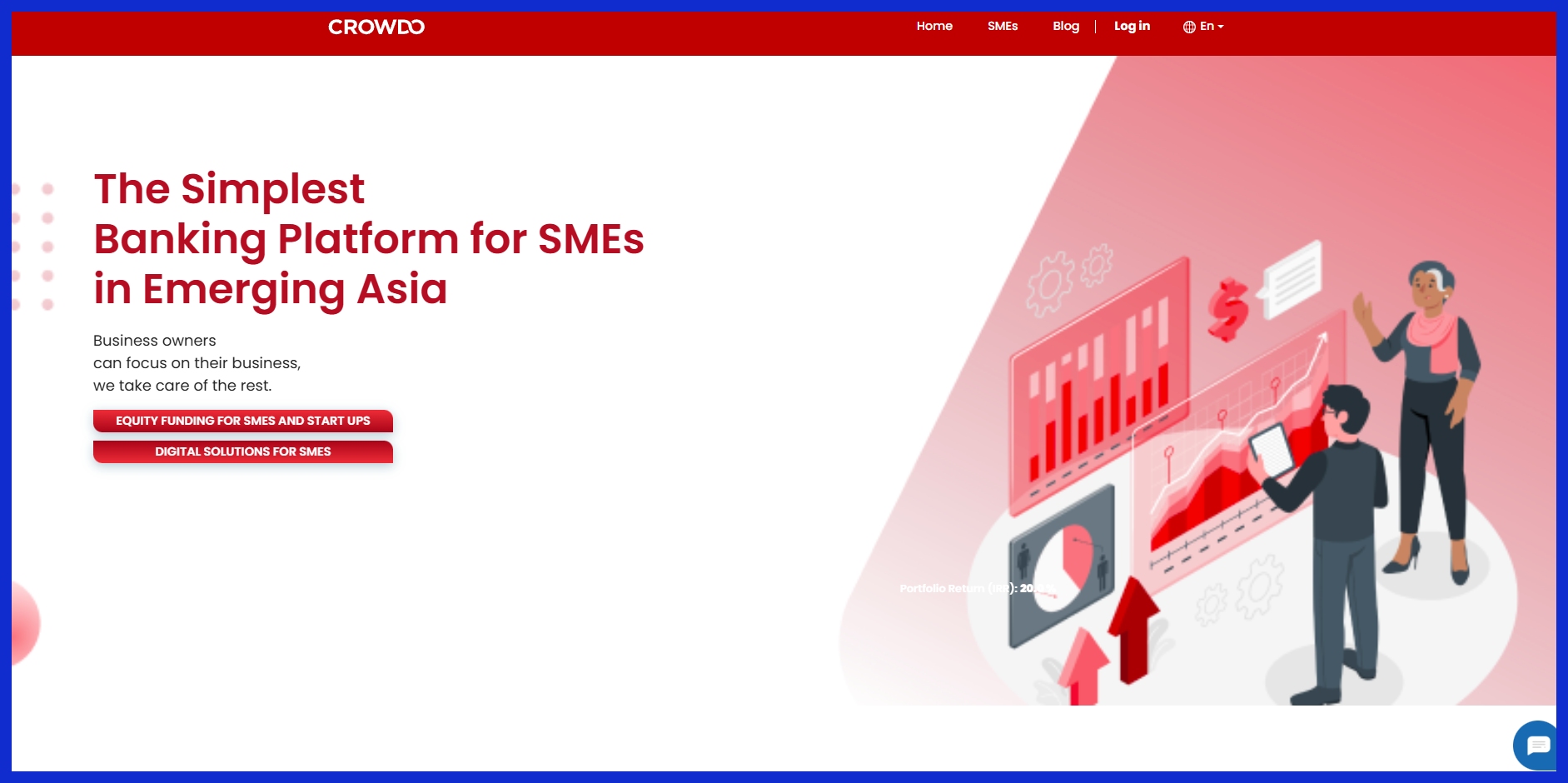
Crowdo goes for a less traditional approach by emphasizing social proof and a focus on community and forums. This is effective for crowd marketing and developing tiered link profiles.
Pricing is package-based, beginning with campaigns at $60. This means that there is a very shallow learning curve, as the platform is quite niche.
There is no free trial offered; however, agencies can request sample links at a discounted cost. Crowdo’s distinct methodology is ideal for agencies that are looking to earn links outside the traditional guest post or editorial formats.
This makes it perfect for a bit more of a creative or layered SEO approach.
Platform Profile 10: LinksThatRank
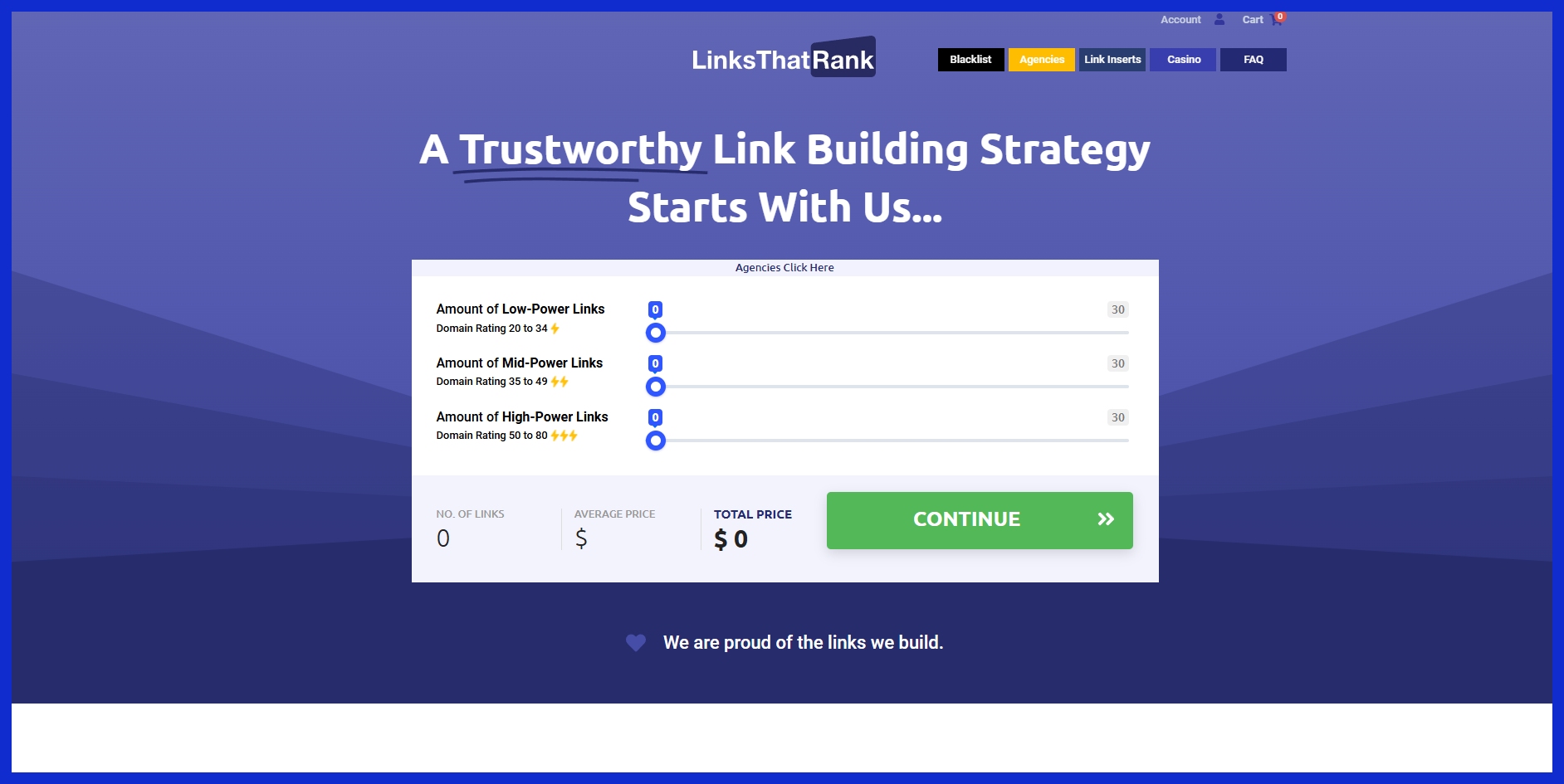
Supported by manual execution, LinksThatRank is unique for its disciplined commitment to quality outreach guest posts, supported by manual consultation.
Pricing is overall on the expensive side. Links range from $150 to $339 per link, based on their authority and niche. There is no official free trial, but a consultation is offered before purchase.
White label reports come standard! When agencies want detailed, manual link-building reports to present to clients, they can benefit from full branding options.
This has made it the go-to choice for affiliate SEOs who don’t want to build PBNs and would rather earn authority.
KPI.me Spotlight: Unique Edge
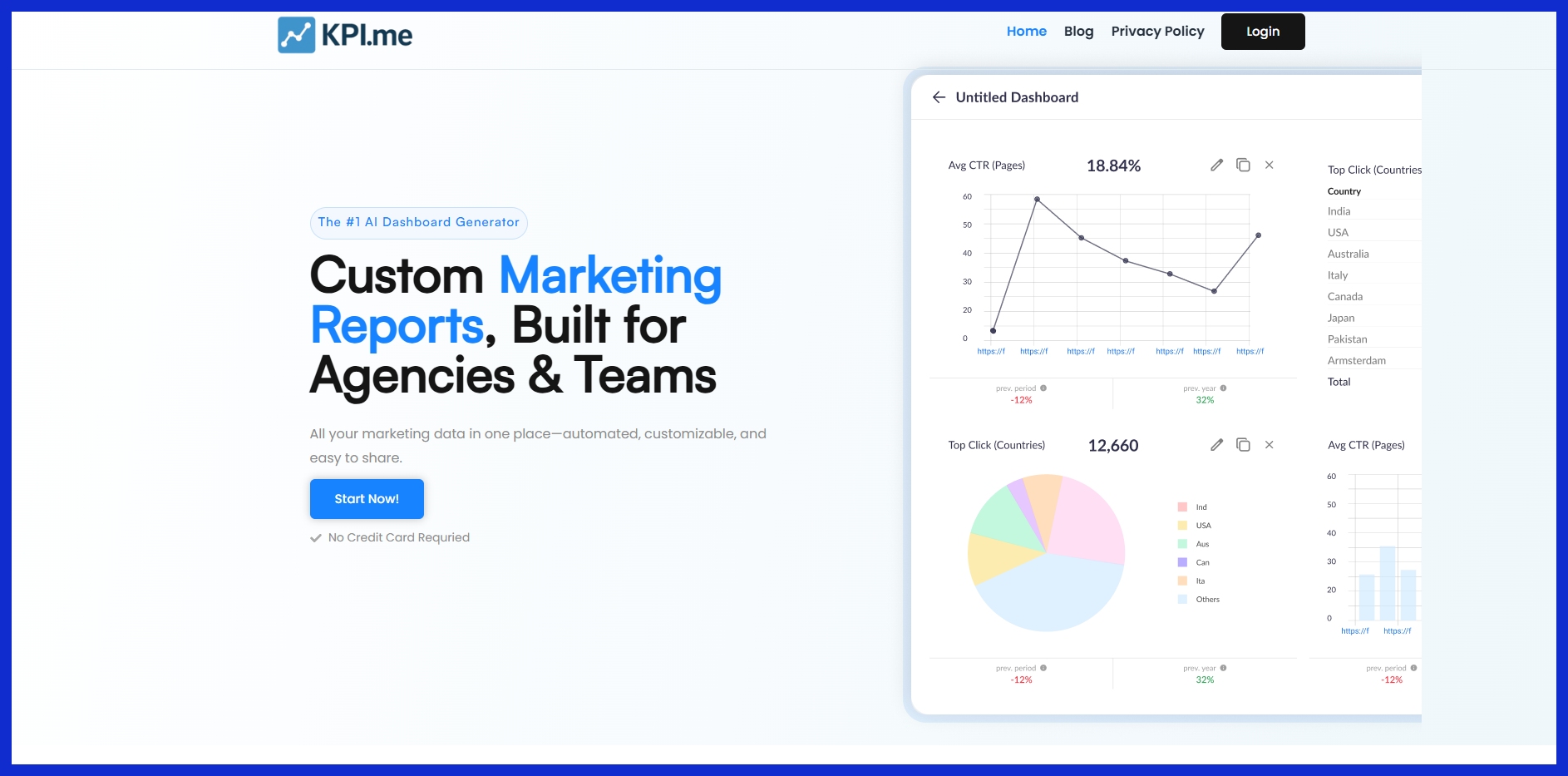
KPI.me brings a suite of tools for agencies and marketing teams that want more than just link building. The platform stands out for its automated, customizable reporting and data visualization options.
There’s a free trial, so agencies can test features before they buy.
KPI.me includes advanced competitor tracking, keyword research, and custom dashboards, all with full white label support from the second pricing tier.
Custom branding options let agencies use their logo, colors, and even domains, helping them present a unified client experience. Its AI-powered insights and focus on ease of use mean teams can set up reports fast, saving hours each week while keeping clients in the loop with fresh, accurate data.
Implement Your Branded Reports
Branded reports implementation goes beyond just slapping a logo and color palette on a report. It’s about creating effective SEO reports that allow clients to strategize, not just rehash what has already happened. Agencies can start by picking a white label SEO tool that lets them add their branding, such as colors, logo, and company info, into the reports.
Craft Reports That Resonate
The difference between a report that gets read and one that gets ignored often comes down to presentation, clarity, and insight. Research indicates that thoughtful reports lead to better outcomes, which include improving client retention by as much as 30 percent. This becomes especially clear when you realize that reports that resonate allow clients to recognize their achievements and know they’re being heard.
Agencies that learn to report crafting with an artist’s touch don’t just provide intel—they create dependable partners and years of goodwill.
Spotlight Essential KPIs
Highlighting the right KPIs is the bread and butter of any effective SEO report, especially when utilizing white label SEO tools. It’s essential to explain that not every metric is important to every client; some leaders prioritize organic traffic, while others focus on conversion rates or local visibility.
Weave Data into Stories
Numbers aren’t very useful by themselves; they are only as powerful as the stories that they tell. To enhance the impact of data, agencies can utilize white label SEO tools to create compelling narratives that relate to the client’s tangible, day-to-day objectives, ensuring that SEO reports resonate with their business goals.
Ensure Clarity and Brevity
Reports need to be accessible, regardless of the reader’s expertise. Utilizing a white label SEO report can enhance clarity and brevity, ensuring they always prevail. Avoid using technical jargon that may alienate non-technical stakeholders, like saying ‘traffic from Google’ instead of ‘organic search acquisition’.
Automate, Then Personalize
While automation does help save time, personalization is what generates the most value. Begin with automated templates that feed in data from multiple sources—Google Analytics, Search Console data, social media, etc. These templates provide you with a uniform starting point for each report.
Don’t give up after just one or two rounds either. Personalize, Personalize, Personalize. Personalize every single report to reflect the client’s immediate goals and the primary focus of the campaign. For instance, a template might cover general SEO metrics like keyword rankings.
Deliver Actionable Next Steps
The best SEO report is one that’s not just a summary of what occurred; it should also include white label SEO tools that orient clients to the next steps they should take. Ensure every report has a set of specific, actionable recommendations, such as utilizing a white label SEO tool to improve site load time or reworking the landing page copy.
Foster Open Client Dialogue
Consider strong reports, such as a white label SEO report, as the beginning of the dialogue rather than the conclusion. Encourage your client to ask questions and offer feedback while discussing the next steps in your SEO strategy.
Present Data Visually
Visuals illustrate concepts that might be hard to understand in raw data. Charts, graphs, and icons serve as effective SEO tools, drawing attention to key trends and outcomes, such as the increase in organic traffic over six months, highlighted in this simple line graph.
Future of Branded SEO Reports
Branded SEO reports are evolving rapidly as the digital marketing landscape continues to evolve. Today, new trends such as automation, data integration, and more intelligent dashboards are changing the way agencies and their clients collaborate. These tools make it easier to pull data together from multiple sources.
See here:
- AI-Driven Predictive Insights – AI is transforming the game in SEO reporting. AI-driven predictive insights tools infused with AI are able to identify trends earlier and assist in predicting what will come next. For instance, some of these platforms leverage predictive insights to visualize future traffic flow based on historical trends.
- Hyper-Personalized Client Views – By segmenting data, agencies can create reports that align with individual client objectives, such as improving local search visibility or monitoring review performance.
- More Interactive Dashboards – Static reports are going the way of the dinosaur. We have more agencies than ever before utilizing dashboards with filterable data, allowing the client to click through and discover their own answers.
- Deeper Platform Integrations – Branded SEO reports are no longer a strictly SEO play. Now, agencies expect all of their data to be in one place. The most advanced tools integrate with CRMs, analytics, and other marketing cloud platforms.
Conclusion
White label SEO reporting tools provide US agencies a significant competitive advantage. They enable teams to move quickly, appear professional, and maintain brand awareness. Say goodbye to confusing spreadsheets and undercooked reports—hello, informative, beautifully designed custom reports you can deliver whitelabeled in your brand’s name.
Whether it’s a big shop or a small in-house team, everyone saves hours each week, and clients receive straight answers. Tools that consolidate all KPI data, like KPI.me, allow users to easily build, share, and adjust reports.
Ditch the legacy approach and step up to a solution designed for your workflow. Give KPI.me a free test drive and learn just how easy life can be with smarter, whitelabeled, SEO friendly reports. Interested to learn what your agency can achieve with the right reporting tool in your toolbox?
Visit KPI.me and enjoy the full power of KPI.me completely free today.
Frequently Asked Questions
What is a white label SEO reporting tool?
A white label SEO tool enables agencies to create custom-branded SEO reports that align with their brand identity, removing default branding for a seamless presentation as if they come directly from the agency.
Why do US agencies use white label SEO reporting tools?
Here are the top three reasons US agencies use white label SEO tools to impress clients, save time, and scale services. With clients expecting professionalism and transparency, a white label SEO report not only improves an agency’s trustworthiness but also helps them stand out among the competition.
What features should I look for in a white label SEO reporting tool?
The most important features of white label SEO tools include easy customization, automated report generation, integration with Google Analytics, and high data accuracy. US-based customer support enhances the SEO services for local agencies.
How do I implement white label SEO reports for my clients?
Additionally, you can usually customize the white label SEO report by adding your logo, using your brand colors, and including your contact information. Once you have everything set up the way you want, you can schedule reports to send automatically, ensuring your clients stay informed with zero additional effort.
Are white label reports secure and private?
Yes. The best white label SEO tools utilize advanced encryption and US-based secure data centers. This helps protect client data and comply with American privacy expectations.
Can I use a white label SEO reporting tool if my agency is small?
The answer is most definitely yes. Fortunately, many tools understand the needs of small agencies and cater to them with flexible pricing and features. These white label SEO tools make you appear larger, more experienced, and more professional right out of the gate.
What’s the future of white label SEO reporting tools?
Look for increased automation, AI-powered insights, and greater integration with US search engines and platforms. These advances in white label SEO tools are sure to enhance an agency’s ability to deliver tremendous value to their clients.

